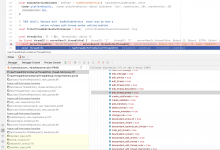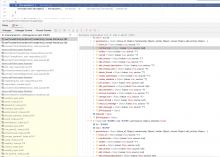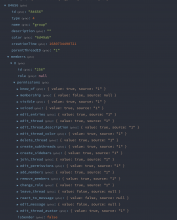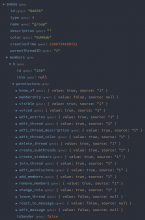We're going to exclude EDIT_THREAD_AVATAR permission from all clients for now. We'll add hasMinCodeVersion check once we have a native release with thread avatar editing enabled.
Depends on D7363 and shows how it can be extended to handle new permissions fairly easily.





